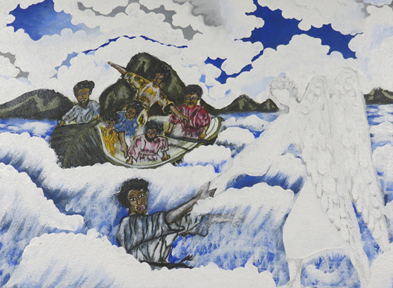“In a painful mix of hope and desperation, countless people risk their lives
to escape war, persecution, poverty and natural disasters.
Unfortunately, the available migration routes take them through nightmares
of harrowing experiences that do not lead them at all to their hopes and dreams.”
(Being Artisans of Hope, p. 19)

Oujda is a Moroccan city at the border with the Algeria and is a last transit hub for migrants seeking to cross the Mediterranean sea. This last African border-crossing between Algeria and Morocco is dangerous and hazardous. Many migrants, after long months of travelling throughout the Sahara desert, arrive in Oujda in poor health and psychological condition.
The two RSCJ in Oujda respond to Imperative 4 of Being Artisans of Hope by “[being] in solidarity with “people on the move”; [… offering] them hospitable spaces where they can be accompanied, listened to, and equipped with the information and skills that will enable them to live more peaceful, productive lives” (p. 20). They offer solidarity within the premises of the Oujda church, a place of welcome, protection and accompaniment. They accommodate migrants who have just crossed the border and need to regain their strength; migrants severely wounded or ill; migrant minors; and/or migrants on “stand-by” who wait to voluntarily return to their home countries. They support migrants undertaking medical operations, accommodate them during convalescence, and caring for their medical therapies. They orient migrant minors, enable them to enroll in professional formation programs, and provide financial aid for the purchase of educational materials. They likewise coordinate with the IOM UN-related agency for the voluntary return of migrants.
